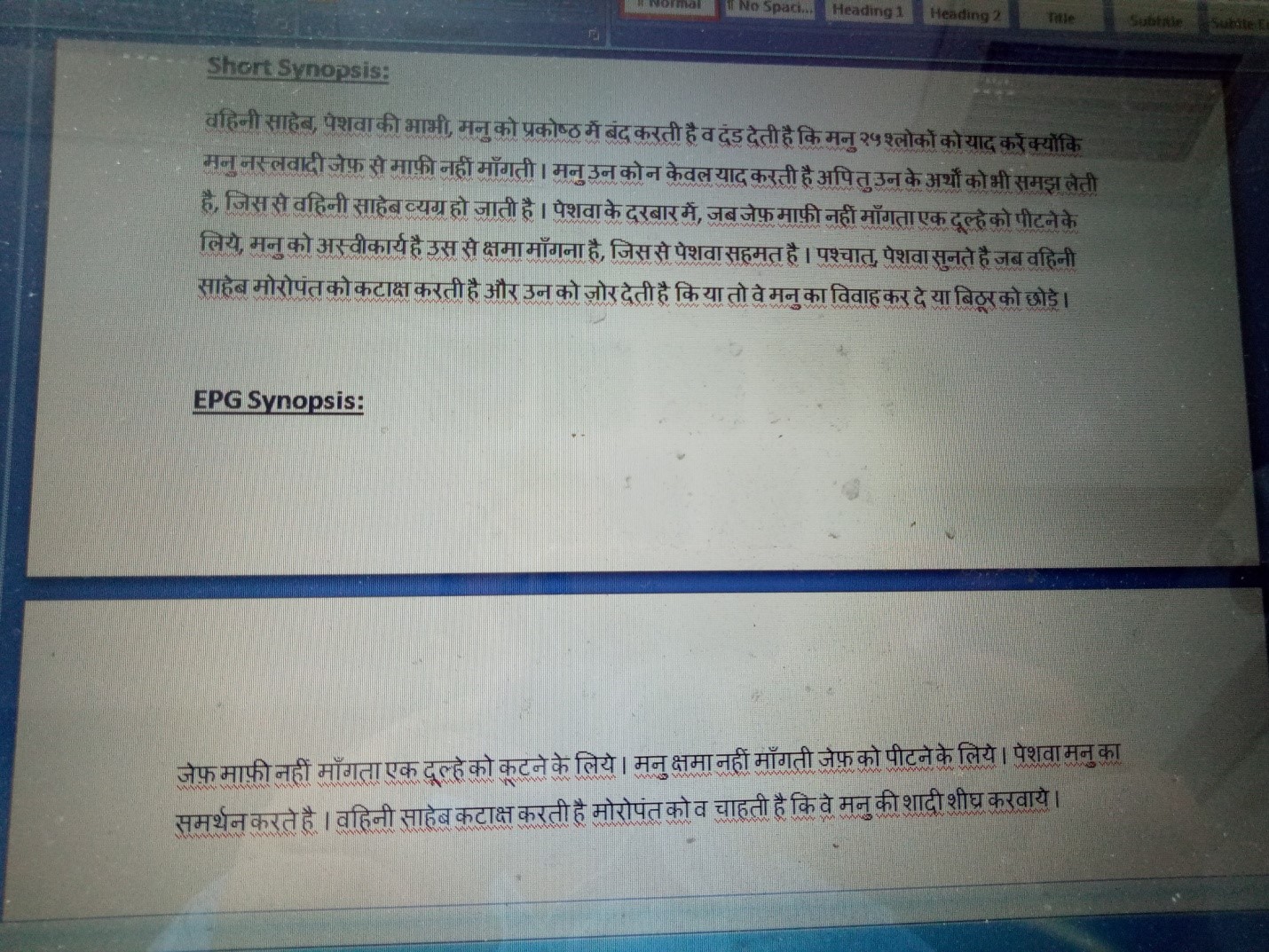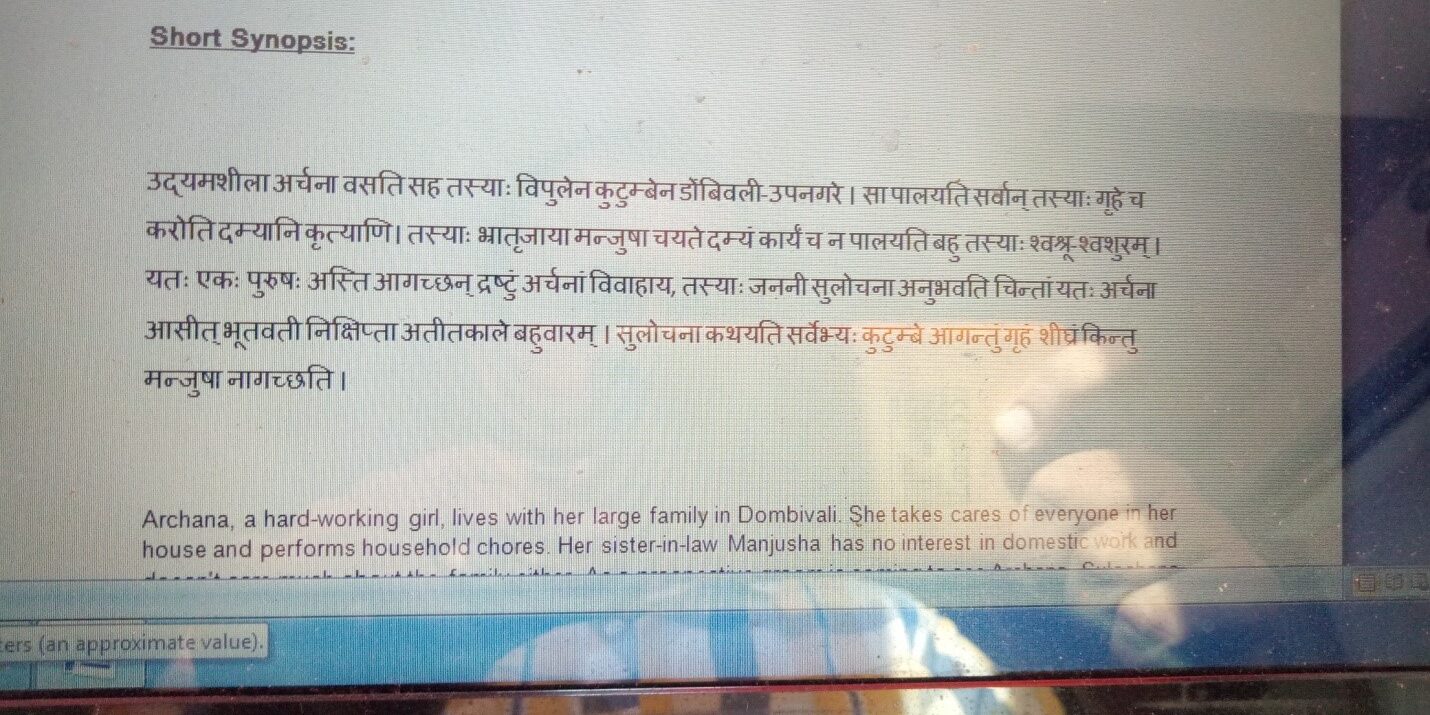Synopsis writing has emerged as a niche professional field in India, with a select group of companies and employees involved in it. A fair number of writers are earning their livelihood by writing synopses of TV shows. Of course, to QC these synopses, editors need to present. While the skill to write English synopses has been sought after for long, the ability to write Indian regional language synopses is increasingly being sought.
Why Indian regional language synopses?
In Bharat, the truth is that not a large percentage of people speak fluently in English and understand the language well. However, the undeniably reality is that a large percentage of Indians communicate well in Indian languages and connect well with them. Also, a large portion of this very segment of Indians possesses a TV set and smartphones and watch entertainment-related content on them. To attract their attention, companies want candidates to write synopses in Bharatiya regional languages using Indic scripts like Devanagari, Brahmi and others.
Many TV channels with a multinational presence and a pan-Indian presence air multilingual programmes. Obviously, these companies want synopses to be written in different languages to attract the respective linguistic target groups.
Indian regional language synopses are read by the viewers and sought after by them. Therefore, companies are seeking candidates with expertise in these languages. Companies seek candidates with spoken and written expertise in these languages and the ability to understand the scripts of these languages.
TV channels with a pan-Indian presence have it as their goal to record Indian regional language synopses for the benefit of the viewers and to generate more online hits. These synopses will be posted by TV channels on their social media platforms and apps. The synopses could also be used by DTHTV service providers for the consumption of the viewers.
Impact of Indian regional language synopses
So many Indians with expertise in Indian languages will get jobs because of this demand of TV channels. TV channels want a database, which contains synopses of different lengths of varied TV shows. Also, what is sought by the TV channels from the writers is the Character Names of the TV shows and key phrases connected to the episodes. This demand of TV channels is creating a job market for candidates with Indian linguistic expertise.

Hindi Synopsis
Also, isn’t there a certain pride in seeing content online in Bharatiya languages and in Indian linguistic scripts? While English continues to remain a key global language and even a key language for interregional communication amongst the Anglophone Indians, there seems to be a growing national and regional pride in India concerning Indian languages. Writing synopses in Indian languages using Indic scripts will help quench the thirst of Indians who are eager to see their languages online. This is also a good way to reduce the dependence on English and the Latin script.
All in all, the demand for English synopses and Indian regional language synopses is likely to coexist.

